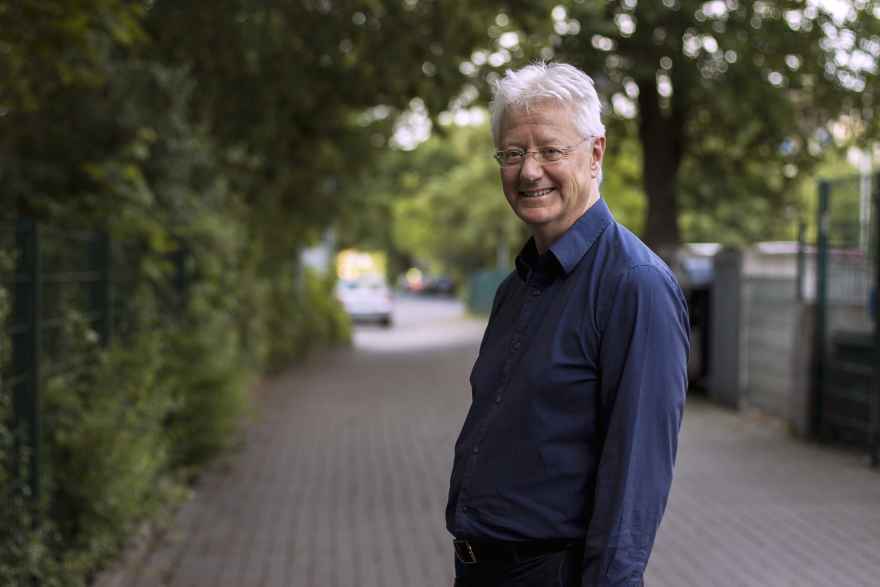Acclaimed South Asian Visiting Scholar to Deliver Annual Vivekananda Lecture

South Asian scholar Peter van der Veer uses his interdisciplinary knowledge to draw unusual comparisons and connections between the nationalism, spiritualism, and religions of India and China. He finds the comparisons of India and China to provide greater insight into the transition from the dominance of Western civilizations to Asian civilizations after World War I.
Applying his expertise on South Asian cultures, anthropology, religion, and ethnicity, Van der Veer will present the Annual Vivekananda Visiting Professor Lecture “The Modern Spirit of Asia: Comparing Indian and Chinese Spiritual Nationalism” on May 7 in Social Science Research Room 122, with a reception at 6 p.m. and the presentation at 6:30 p.m.
“In the West when we think about nationalism worldwide, we do not connect it to ideas of spirituality,” said Van der Veer, UChicago Provost’s Distinguished Visiting Professor and Director of the Max Planck Institute for Religious and Ethnic Diversity in Göttingen, Germany. “However in India and China, high spirituality is a major form of nationalism and serves as a critique of Western civilization and materialism.”
India nationalism is strongly associated with religion and the still vivid influences of Swami Vivekananda and Mahatma Gandhi. During the emerging nationalism in British-ruled India in the early 20th century, Vivekananda crystalized spiritual and religious concepts for a nationalist ideal and influenced the independence movement, especially for political leaders like Gandhi.
Contrary to popular notions about secularization within China, Van der Veer contends the government wants to dispense with popular superstitions but keep national spirituality alive. In China, religion is much more significant than often argued, and religion is significant for the country’s nationalism, he said.
“Peter is one of the foremost scholars in comparative studies of religion, nationalism, and urban life in Asia,” said Dipesh Chakrabarty, the Lawrence A. Kimpton Distinguished Service Professor in the Department of South Asian Languages and Civilizations. “He is also a globally recognized theorist of comparative studies, who has written many original books and articles on these subjects. One of the very few scholars to study Asia as a whole, Peter started out as a scholar of South Asia but has now written illuminatingly on East and Southeast Asia as well. Given the role that urban Asia will increasingly play in determining the future of humanity, the importance of Peter’s research cannot be overstated.”
His opportunity to teach at UChicago for the next two consecutive spring terms is not Van der Veer’s first visiting professorship here. He is familiar with the university’s culture and finds that the intellectual life is highly appreciated and that a broad range of topics are discussed in-depth. “UChicago is less academic and more intellectual in spirit,” he said.
In turn, his UChicago colleagues value his wide ranging knowledge and curiosity. “Peter has made seminal contributions to such widely differing areas as the historical sociology of Indian asceticism, the study of the contemporary Asian city, and the creation of colonial knowledge and its imbrication in the history of anthropology,” said Whitney Cox, associate professor and Chair of the Department of South Asian Languages and Civilizations.
Additionally, Van der Veer will examine the economic paradox of the two Asian nations. In India, where democracy reigns, the economy is not nearly as robust as China’s where authoritarian rule dominates. This divergence may contradict the notion that freedom is essential to economic growth.
“Peter is a consummate scholar of religion and nationalism, among those rare anthropologists who strike that auspicious balance between the forest and the trees,” said Angie Heo, assistant professor in Anthropology and Sociology of Religion in the Divinity School at UChicago. “In his earlier works, Gods on Earth (1988) and Religious Nationalism (1994), he made his mark in comparative religions and political anthropology through his studious and synthetic analyses of ritual and intercommunal violence. Decades later, in The Modern Spirit of Asia (2014) and The Value of Comparison (2016), Peter has embarked on a bold, ambitious adventure into the panoptics of comparison and broader methodological concerns about what the discipline of anthropology can offer for social scientific inquiry at large.”